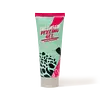What's inside
What's inside
 Key Ingredients
Key Ingredients

 Benefits
Benefits

 Concerns
Concerns

 Ingredients Side-by-side
Ingredients Side-by-side

Water
Skin ConditioningGlycerin
HumectantDipropylene Glycol
HumectantCellulose
AbsorbentAlcohol Denat.
AntimicrobialSteartrimonium Methosulfate
Carbomer
Emulsion StabilisingAcrylates/C10-30 Alkyl Acrylate Crosspolymer
Emulsion StabilisingSodium Hyaluronate
HumectantHydrolyzed Hyaluronic Acid
HumectantSodium Acetylated Hyaluronate
HumectantHydrolyzed Collagen
EmollientPEG-60 Hydrogenated Castor Oil
EmulsifyingPhenoxyethanol
PreservativeIsopropyl Alcohol
Solvent1,2-Hexanediol
Skin ConditioningDisodium EDTA
Butylene Glycol
HumectantParfum
MaskingWater, Glycerin, Dipropylene Glycol, Cellulose, Alcohol Denat., Steartrimonium Methosulfate, Carbomer, Acrylates/C10-30 Alkyl Acrylate Crosspolymer, Sodium Hyaluronate, Hydrolyzed Hyaluronic Acid, Sodium Acetylated Hyaluronate, Hydrolyzed Collagen, PEG-60 Hydrogenated Castor Oil, Phenoxyethanol, Isopropyl Alcohol, 1,2-Hexanediol, Disodium EDTA, Butylene Glycol, Parfum
Water
Skin ConditioningButylene Glycol
HumectantCellulose
AbsorbentCarbomer
Emulsion StabilisingIsostearamidopropyl Ethyldimonium Ethosulfate
Propylene Glycol
HumectantGluconic Acid
Mandelic Acid
AntimicrobialLactobionic Acid
BufferingArginine
MaskingSodium Hyaluronate
HumectantHydrolyzed Collagen
EmollientMoringa Oleifera Seed Oil
EmollientArgania Spinosa Kernel Oil
EmollientAdansonia Digitata Seed Oil
EmollientAloe Barbadensis Leaf Extract
EmollientHydrolyzed Viola Tricolor Extract
Skin ProtectingSodium Hydroxide
BufferingSodium Hyaluronate Crosspolymer
Humectant1,2-Hexanediol
Skin ConditioningSqualene
EmollientPropanediol
SolventCaprylyl Glycol
EmollientEthylhexylglycerin
Skin ConditioningPhenoxyethanol
PreservativeSodium Chloride
MaskingDisodium EDTA
Water, Butylene Glycol, Cellulose, Carbomer, Isostearamidopropyl Ethyldimonium Ethosulfate, Propylene Glycol, Gluconic Acid, Mandelic Acid, Lactobionic Acid, Arginine, Sodium Hyaluronate, Hydrolyzed Collagen, Moringa Oleifera Seed Oil, Argania Spinosa Kernel Oil, Adansonia Digitata Seed Oil, Aloe Barbadensis Leaf Extract, Hydrolyzed Viola Tricolor Extract, Sodium Hydroxide, Sodium Hyaluronate Crosspolymer, 1,2-Hexanediol, Squalene, Propanediol, Caprylyl Glycol, Ethylhexylglycerin, Phenoxyethanol, Sodium Chloride, Disodium EDTA
Ingredients Explained
These ingredients are found in both products.
Ingredients higher up in an ingredient list are typically present in a larger amount.
1,2-Hexanediol is a synthetic liquid and another multi-functional powerhouse.
It is a:
- Humectant, drawing moisture into the skin
- Emollient, helping to soften skin
- Solvent, dispersing and stabilizing formulas
- Preservative booster, enhancing the antimicrobial activity of other preservatives
Butylene Glycol (or BG) is used within cosmetic products for a few different reasons:
Overall, Butylene Glycol is a safe and well-rounded ingredient that works well with other ingredients.
Though this ingredient works well with most skin types, some people with sensitive skin may experience a reaction such as allergic rashes, closed comedones, or itchiness.
Learn more about Butylene GlycolCarbomer is a polymer of acrylic acid. Its main role is to create a gel consistency.
A high amount of carbomer can cause pilling or balling up of products. Don't worry, most products contain 1% or less of carbomer.
Cellulose is the main component of plant cell walls. It is used as an emulsifier, absorbent, and texture enhancer.
This ingredient has many functions:
Fun fact: Cellulose is the most abundant form of organic polymer on Earth.
Learn more about CelluloseDisodium EDTA plays a role in making products more stable by aiding other preservatives.
It is a chelating agent, meaning it neutralizes metal ions that may be found in a product.
Disodium EDTA is a salt of edetic acid and is found to be safe in cosmetic ingredients.
Learn more about Disodium EDTAHydrolyzed collagen has a misleading name because it is actually a mixture of various proteins/peptides. This ingredient has skin hydrating properties.
Collagen is the most abundant type of structural protein found in your body. In your skin, it is responsible for keeping it firm and youthful.
Hydrolyzed Collagen is created by breaking up proteins into smaller peptide bonds. These peptides act as humectants and emollients.
Humectants are great at holding onto water, keeping skin hydrated. Emollients create a thin barrier on the skin to prevent moisture from escaping.
There is ongoing debate about whether hydrolyzed collagen works because it increases skin hydration. Skin hydration is also linked to elasticity and the appearance of wrinkles.
Collagen or peptide ingredients can be used in the morning or night. They will not increase sun sensitivity, but you should always wear sunscreen during the day.
According to a manufacturer, this ingredient is a great hair conditioner as well.
This ingredient can be extracted from different sources, including:
Vegan collagen is derived from yeast, bacteria, or plant sources. Vegan collagen would go by a different INCI name, such as hydrolyzed soy protein.
The results are varied.
A study from 2021 found hydrolyzed collagen increased elasticity and improved wrinkles in 1,125 participants between age 20 and 70. Another study found increased skin thickness in participants between the ages of 45 to 59.
However, It is difficult to prove that oral collagen will end up working on your skin. Many of the studies using hydrolyzed collagen also add several vitamins and nutrients into the test mixture as well.
Further studies are needed at this time.
Learn more about Hydrolyzed CollagenPhenoxyethanol is a preservative that has germicide, antimicrobial, and aromatic properties. Studies show that phenoxyethanol can prevent microbial growth. By itself, it has a scent that is similar to that of a rose.
It's often used in formulations along with Caprylyl Glycol to preserve the shelf life of products.
Sodium Hyaluronate is hyaluronic acid's salt form. It is commonly derived from the sodium salt of hyaluronic acid.
Like hyaluronic acid, it is great at holding water and acts as a humectant. This makes it a great skin hydrating ingredient.
Sodium Hyaluronate is naturally occurring in our bodies and is mostly found in eye fluid and joints.
These are some other common types of Hyaluronic Acid:
Learn more about Sodium HyaluronateWater. It's the most common cosmetic ingredient of all. You'll usually see it at the top of ingredient lists, meaning that it makes up the largest part of the product.
So why is it so popular? Water most often acts as a solvent - this means that it helps dissolve other ingredients into the formulation.
You'll also recognize water as that liquid we all need to stay alive. If you see this, drink a glass of water. Stay hydrated!
Learn more about Water